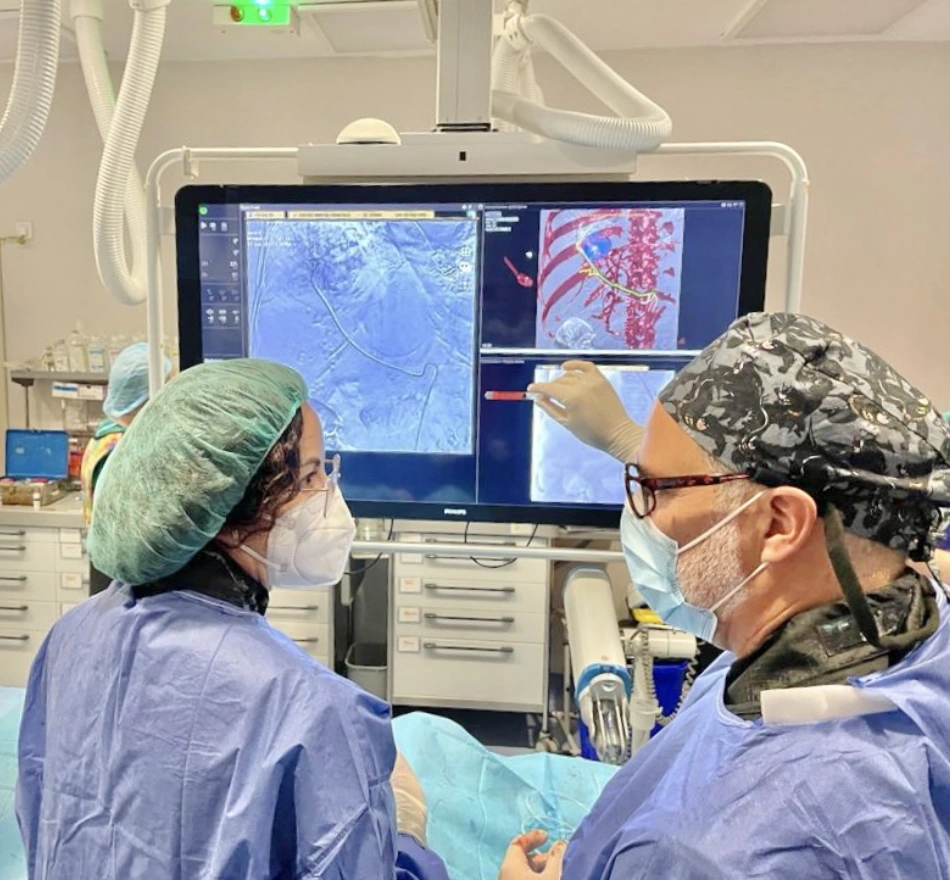What does Percutaneous Tumour Ablation involve?
Percutaneous ablation is a minimally invasive procedure that uses image technology to guide the precise placement of one or several needles in the centre of the tumour to be treated. Using different technologies, these needles apply energy to destroy a controlled volume of tissue, eliminating the tumour. Ablation may be curative in some cases and there is a high level of scientific evidence.


